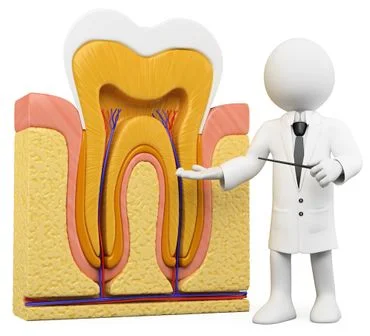Does your tooth feel like it has a tiny tunnel carved into it from decay or trauma? Is the pain pulsing through your jaw and making daily tasks harder? If you are searching for root canal dental care from an endodontist London, you are in the right place.
Contact our clinic to schedule an appointment at a time that works for you.
Call our clinic today so we can book you an appointment that suits your schedule.

Understanding the Need for a Root Canal
When a tooth’s inner pulp becomes infected or injured, a root canal dental london procedure may be needed to save the tooth. In the past, many people believed that a root canal meant losing their tooth. With modern root canal dentistry, advanced tools allow us to clean, protect, and restore your natural tooth so it can function comfortably again.
What Is the Tooth Pulp?
Inside every tooth is a chamber called the pulp. This area contains nerves and blood vessels that help the tooth grow and stay alive.
When bacteria reach the pulp through deep decay, cracks, or previous trauma, infection can spread quickly. This is often what triggers sharp pain, swelling, or temperature sensitivity.
Signs You May Need Root Canal Dental Treatment
Not every tooth infection causes pain, but common warning signs include:
- Swelling or tenderness near the affected tooth
- Sharp or shooting pain in a specific area of the mouth
- Darkening or discoloration of the tooth
- Strong sensitivity to hot or cold temperatures
Only a dental examination can confirm whether root canal treatment is required.

What Happens During a Root Canal Procedure?
A root canal may take one to three visits depending on the condition of the tooth.
Step 1: Local Freezing
The dentist applies effective local anesthetic to ensure the area is fully numb.
Step 2: Removing Infected Tissue
The infected or damaged pulp is carefully removed from inside the tooth.
Step 3: Cleaning and Disinfecting
The canals are cleaned, shaped, and sterilized to remove bacteria and prevent further infection.
Step 4: Filling the Canal
A safe filling material is placed inside the tooth to seal it.
Step 5: Protecting the Tooth
If the tooth has become weak or lost structure, a dental crown may be recommended to prevent future fractures. This decision is made based on your checkup and long-term oral health needs.
Root Canal Cost in London, Ontario
The root canal cost varies depending on the tooth location, number of canals, and level of infection. A full estimate is provided during your examination so you know exactly what to expect before treatment begins.
A root canal may take one to three visits depending on the condition of the tooth.
Root Canal Specialists and Endodontic Expertise
Complex or severe infections may be referred to a root canal specialist or an endodontist London for advanced care. General dentists and specialists work together to ensure your treatment is comfortable and effective.
A root canal may take one to three visits depending on the condition of the tooth.
Frequently Asked Questions (FAQ)
1. How painful is a root canal?
With modern anesthesia, root canal procedures are generally no more uncomfortable than getting a dental filling. Most patients feel relief once the infection is removed.
2. Will I lose my tooth?
No. The purpose of root canal dental treatment is to save your natural tooth whenever possible.
3. Do I need a crown after a root canal?
Not always. Molars and premolars often need crowns because they handle heavy chewing. The dentist will evaluate your tooth’s structure before recommending a crown.
4. How long does a root canal last?
With proper oral hygiene and regular checkups, a treated tooth can last many years or even a lifetime.
5. Is a root canal expensive?
The root canal cost depends on the complexity of the tooth. Front teeth are usually less costly than molars due to fewer canals.
A root canal may take one to three visits depending on the condition of the tooth.

